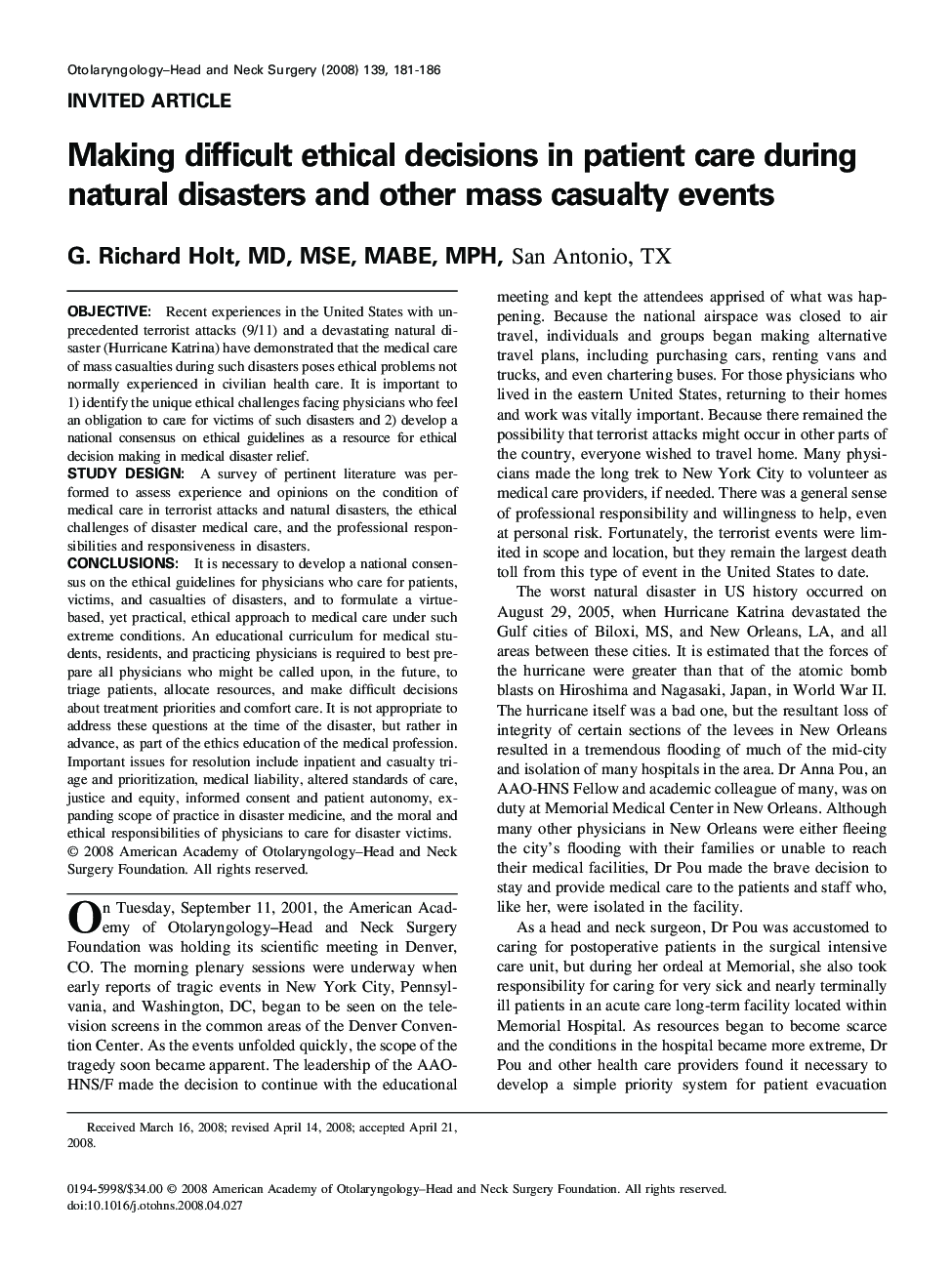| Article ID | Journal | Published Year | Pages | File Type |
|---|---|---|---|---|
| 4126056 | Otolaryngology - Head and Neck Surgery | 2008 | 6 Pages |
Abstract
It is necessary to develop a national consensus on the ethical guidelines for physicians who care for patients, victims, and casualties of disasters, and to formulate a virtue-based, yet practical, ethical approach to medical care under such extreme conditions. An educational curriculum for medical students, residents, and practicing physicians is required to best prepare all physicians who might be called upon, in the future, to triage patients, allocate resources, and make difficult decisions about treatment priorities and comfort care. It is not appropriate to address these questions at the time of the disaster, but rather in advance, as part of the ethics education of the medical profession. Important issues for resolution include inpatient and casualty triage and prioritization, medical liability, altered standards of care, justice and equity, informed consent and patient autonomy, expanding scope of practice in disaster medicine, and the moral and ethical responsibilities of physicians to care for disaster victims.
Related Topics
Health Sciences
Medicine and Dentistry
Otorhinolaryngology and Facial Plastic Surgery
Authors
G. Richard MD, MSE, MABE, MPH,
